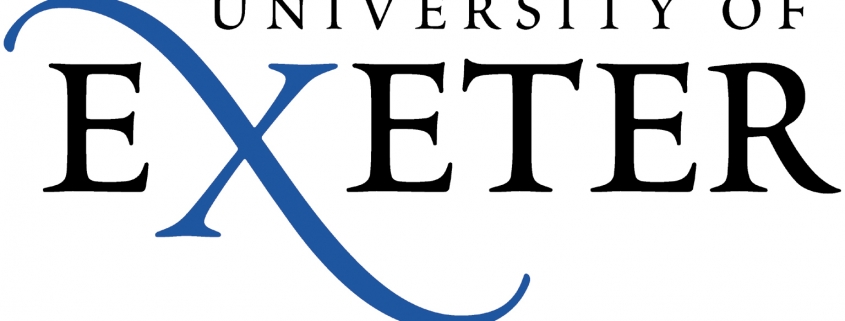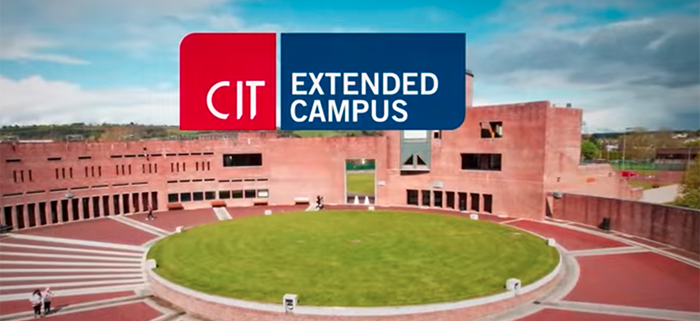Social Work in Austria: study courses of the Kodolányi János University of Applied Sciences (KJUAS)
The labour market needs adequate theoretical training – connected with the practice. The cooperation between KJUAS and social institutions in Austria makes it possible to update training programs constantly, concerning labour market practices and requirements. Students of KJUAS are experienced with the world of work in Austria, collecting theoretical and practical knowledge from Austrian experts […]
https://procsee.eu/wp-content/uploads/sites/25/2016/04/PROCSEE-Logo.jpg
0
0
https://procsee.eu/wp-content/uploads/sites/25/2016/04/PROCSEE-Logo.jpg
2018-06-08 10:53:202019-01-31 12:45:40Social Work in Austria: study courses of the Kodolányi János University of Applied Sciences (KJUAS)Teaching, Learning and Assessment and Skills in Further Education
Case 2 summarises the most significant features of outstanding teaching, learning and assessment in the Further/Higher Education and Skills sector and the factors that contribute to these. It also identifies several areas where more improvement is needed. Her Majesty’s Inspectors visited further education colleges, sixth form colleges, independent learning providers, employer providers and providers of […]
https://procsee.eu/wp-content/uploads/sites/25/2018/06/17020572-abstract-word-cloud-for-further-education-with-related-tags-and-terms.jpg
1012
1300
Watte Zijlstra
https://procsee.eu/wp-content/uploads/sites/25/2016/04/PROCSEE-Logo.jpg
Watte Zijlstra2018-06-07 15:49:112019-01-31 02:40:22Teaching, Learning and Assessment and Skills in Further EducationOECD/CERI 2016: Learning in the 21st Century – Research, Innovation and Policy & Assessment for Learning Formative Assessment
Assessment for Learning Formative Assessment provides findings on learning, drawn from recent analyses undertaken by Centre for Educational Research and Innovation (CERI), part of The Organisation for Economic Cooperation and Development (OECD). The case begins with analysis of the formative approach in exemplary practice carried out in secondary schools in eight education systems. The second […]
https://procsee.eu/wp-content/uploads/sites/25/2018/06/oecd_text_20cm_4c1.jpg
724
2362
Watte Zijlstra
https://procsee.eu/wp-content/uploads/sites/25/2016/04/PROCSEE-Logo.jpg
Watte Zijlstra2018-06-07 15:14:372019-01-31 02:41:23OECD/CERI 2016: Learning in the 21st Century – Research, Innovation and Policy & Assessment for Learning Formative AssessmentTeaching Quality Assurance Manual: Teaching Quality Assurance
The Teaching Quality Assurance Manual (TQA Manual) is a resource for staff and students containing the processes which underpin the quality of learning and teaching at the University of Exeter. The Ordinances of the University are made by Council to amplify the meaning of the Statutes which sit above them. The Codes of Practice and […]
https://procsee.eu/wp-content/uploads/sites/25/2018/06/colour_logo.jpg
631
1535
Watte Zijlstra
https://procsee.eu/wp-content/uploads/sites/25/2016/04/PROCSEE-Logo.jpg
Watte Zijlstra2018-06-07 10:00:452019-01-31 02:42:13Teaching Quality Assurance Manual: Teaching Quality AssuranceSpecial Centers for Professional Preparation and Professional Education
This new technical university has been established in 2006 and it was looking for its strategy. One of the key parts or the strategy of the university was to reflect the needs of students and employers; it has projected practice-oriented branches and taking care about feedback of its graduates and about communication with all stakeholders. The university has a special Center for Professional Preparation, it cooperates with the world of work successfully and participates in national and international projects and research with its alumni. A system of competitions and grants is in place to encourages both groups to regularly participate. Students benefit from going through the experience of working on a long-term project and subsequently defending it in front of an audience. A system of competitions and grants is in place to encourages both groups to regularly participate. Students benefit from going through the experience of working on a long-term project and subsequently defending it against tough competition. Tens of students participate annually in these competitions and innovative ideas, practical solutions, and unusual projects are often brought forward. The university reflects needs of employers’ and student and correct the curricula content by adding new modules or by content of study corrections. It is a regular process supporting all placements.
https://procsee.eu/wp-content/uploads/sites/25/2016/04/PROCSEE-Logo.jpg
0
0
https://procsee.eu/wp-content/uploads/sites/25/2016/04/PROCSEE-Logo.jpg
2018-06-07 08:27:512018-10-17 10:14:40Special Centers for Professional Preparation and Professional EducationNo formal differentiation between PHE and other HE degrees in respect of employability
The case of no formal differentiation between professional and academic higher education qualifications in respect of employment, but also education progression routes, provides a lesson that flexible and incremental development of professional higher education can be stimulated by lack of regulation rather than by detailed schemes.
https://procsee.eu/wp-content/uploads/sites/25/2016/04/PROCSEE-Logo.jpg
0
0
https://procsee.eu/wp-content/uploads/sites/25/2016/04/PROCSEE-Logo.jpg
2018-06-07 08:16:572018-10-17 10:16:07No formal differentiation between PHE and other HE degrees in respect of employabilityThe College of Logistics
The College of Logistics presents a case of how a focus on clear institutional profile implemented via strategy of intensification (instead of amplification) of an institution's operation can bear the fruit of both sustainable growth and recognition of the higher education institution.
https://procsee.eu/wp-content/uploads/sites/25/2016/04/PROCSEE-Logo.jpg
0
0
https://procsee.eu/wp-content/uploads/sites/25/2016/04/PROCSEE-Logo.jpg
2018-06-07 08:15:412018-10-17 10:17:13The College of LogisticsExtraordinary Professorships under New Higher Education Law
A new scheme enacted by law provides an option for higher education institutions to appoint "extraordinary professors" from among senior-level experienced practitioners, thus making another entry point into the so-far single-track academic career. The pre-condition to using the new scheme will however be bestowed upon a higher education institution of institutional accreditation, which can itself put limitation to spread of this new practice if institutional accreditation becomes a norm mainly for traditional comprehensive universities.
https://procsee.eu/wp-content/uploads/sites/25/2016/04/PROCSEE-Logo.jpg
0
0
https://procsee.eu/wp-content/uploads/sites/25/2016/04/PROCSEE-Logo.jpg
2018-06-07 08:14:152018-10-17 10:21:35Extraordinary Professorships under New Higher Education LawCIT Extended Campus
The CIT Extended Campus model is unique in the Irish higher education system as a single point of contact for external organisations seeking to interact with academics and researchers in CIT for graduate formation, workforce development or research and innovation. It provides a stimulus for interaction through case studies and exemplars intended to generate the […]
https://procsee.eu/wp-content/uploads/sites/25/2018/06/CIT.png
467
700
https://procsee.eu/wp-content/uploads/sites/25/2016/04/PROCSEE-Logo.jpg
2018-06-06 19:38:382019-01-31 02:42:52CIT Extended CampusRegional Skills Forum (South-West)
In 2016 a new Network of Regional Skills Fora was created as part of the Government’s National Skills Strategy to provide an additional opportunity for employers and the education and training system to work together to meet the emerging skills needs of their regions. It is intended that more structured engagement on the skills agenda […]
https://procsee.eu/wp-content/uploads/sites/25/2018/06/Logo-Portal-1.jpg
121
390
https://procsee.eu/wp-content/uploads/sites/25/2016/04/PROCSEE-Logo.jpg
2018-06-06 18:21:012019-01-31 02:43:45Regional Skills Forum (South-West)





